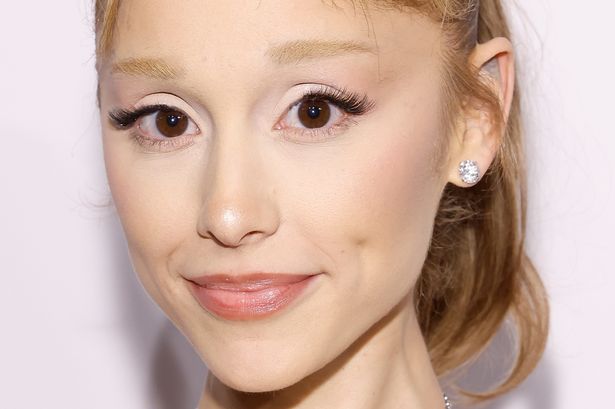The pursuit of physical perfection, fueled by social media’s relentless portrayal of idealized beauty, has reached a concerning crescendo, particularly among teenagers. A leading plastic surgeon’s recent revelation of turning away young patients seeking to emulate the features of celebrities like Ariana Grande and Zendaya highlights this disturbing trend. These teenagers, bombarded with filtered images and unrealistic beauty standards, are increasingly seeking surgical interventions to achieve a perceived ideal, often blurring the lines between aspiration and obsession. This phenomenon reflects a deeper societal issue – the pervasive pressure to conform to a narrow definition of beauty, often at the expense of individual identity and self-worth. The quest for a “celebrity look” reveals a troubling disconnect between self-acceptance and the unattainable images projected by the entertainment industry and amplified by social media platforms. This trend necessitates a broader conversation about body image, self-esteem, and the ethical responsibilities of surgeons in addressing the psychological motivations behind such requests.
The surgeon’s decision to refuse these procedures underscores the ethical dilemma faced by medical professionals. While cosmetic surgery can offer positive outcomes for individuals with genuine physical concerns or those seeking to address specific insecurities, performing procedures on impressionable teenagers who base their desires on fleeting celebrity trends raises significant ethical red flags. It begs the question of informed consent, the potential for regret, and the psychological implications of chasing an ever-evolving ideal. The surgeon’s reluctance to operate serves as a responsible safeguard against potentially harmful and irreversible decisions driven by immature perceptions of beauty. It also highlights the crucial role of mental health professionals in addressing the underlying psychological factors contributing to body image dissatisfaction and the desire for extreme physical alterations.
The pressure to conform to idealized beauty standards, exacerbated by social media’s pervasive influence, contributes significantly to the surge in teenagers seeking cosmetic procedures. Platforms like Instagram and TikTok, saturated with heavily edited images and videos, perpetuate a culture of comparison and self-criticism. This constant exposure to flawless, often unrealistic, portrayals of beauty can distort perceptions of normalcy and fuel feelings of inadequacy, particularly among young people whose sense of self is still developing. The curated nature of online content often masks the reality of imperfections and the natural diversity of human appearance, leading to a skewed understanding of beauty and its attainability. This digital distortion of reality contributes to the pressure to seek surgical solutions to perceived flaws, highlighting the need for media literacy and critical engagement with online content.
The pursuit of a “celebrity look” raises complex questions about identity formation and the influence of popular culture on self-perception. Teenagers, navigating the challenges of adolescence and the search for their own identity, can be particularly susceptible to the allure of celebrity culture and the perceived glamour associated with it. Emulating the appearance of admired figures can be seen as a way to gain acceptance, boost self-esteem, or even achieve a sense of belonging. However, this pursuit can be detrimental when it becomes an obsessive quest for unattainable perfection, leading to body dysmorphia and a distorted sense of self. It underscores the importance of fostering a positive self-image, grounded in self-acceptance and an appreciation for individual uniqueness, rather than striving for an idealized and often unattainable image projected by the media.
The role of parents and educators in shaping healthy body image perceptions is crucial in mitigating the negative impact of media and celebrity culture. Open communication, media literacy education, and fostering a positive self-image are essential tools in helping teenagers navigate the complexities of beauty standards and develop a healthy relationship with their bodies. Parents can play a vital role in promoting self-acceptance, encouraging critical thinking about media portrayals of beauty, and emphasizing the importance of inner qualities over external appearances. Educators can integrate media literacy into the curriculum, equipping students with the skills to analyze and deconstruct the often-manipulated images they encounter online. By fostering a supportive environment that values diversity and celebrates individuality, parents and educators can empower teenagers to resist the pressure to conform to unrealistic beauty ideals.
The increasing number of teenagers seeking cosmetic procedures to emulate celebrities signals a broader societal need for a shift in perspective regarding beauty and self-worth. Promoting body positivity, celebrating diversity, and emphasizing the importance of inner qualities over external appearances are crucial steps in fostering a healthier and more inclusive culture. Challenging the narrow definitions of beauty perpetuated by the media and encouraging self-acceptance are essential in creating an environment where individuals feel valued and appreciated for who they are, rather than how they look. This shift requires a collective effort from parents, educators, media outlets, and social media platforms to promote a more realistic and diverse representation of beauty, fostering a culture of self-love and acceptance.














